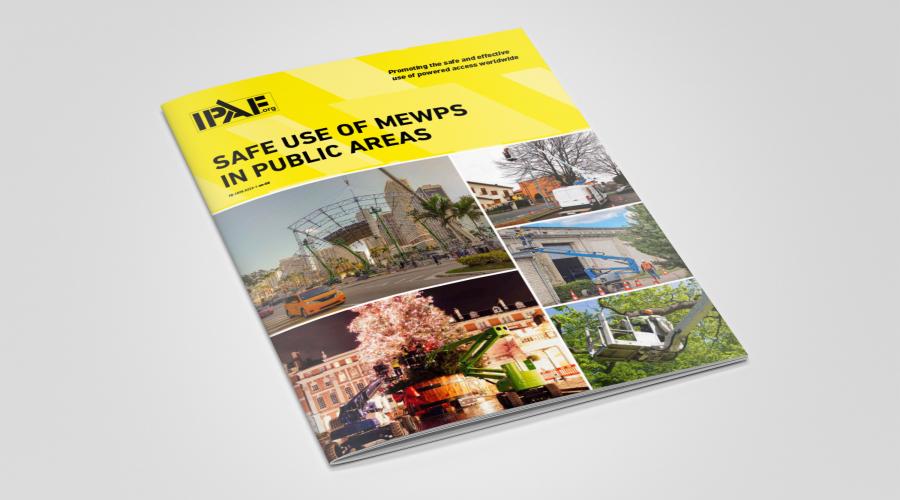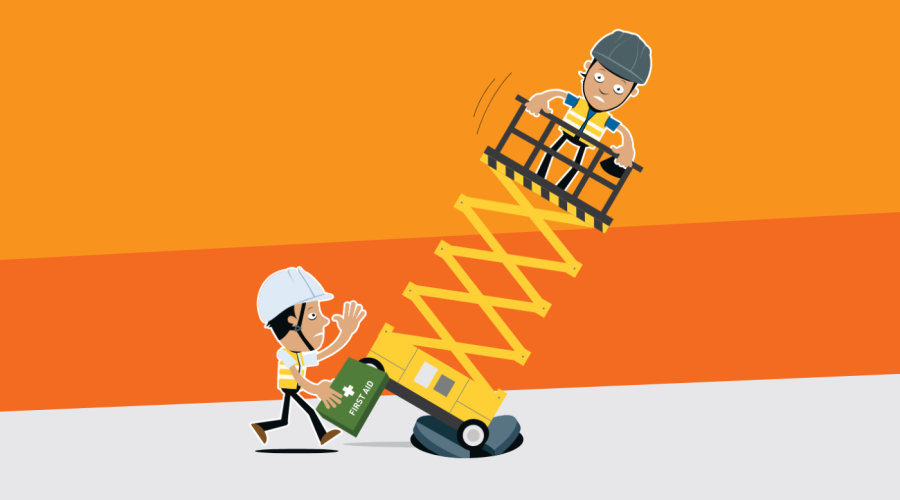IPAF publishes new guidance on using MEWPs in public areas

Comprehensive new guidance outlining the key principles and ways to reduce likely risks when using Mobile Elevating Work Platforms (MEWPs) in public areas and near roads has been published by the International Powered Access Federation (IPAF).
The new guidance document, entitled Safe Use of MEWPs in Public Areas, has been developed by IPAF in collaboration with its International Safety Council (ISC) and supporting members, and is available to view or download in English, Dutch, French, German, Italian, Korean, Portuguese, simplified Chinese and Spanish. It can be downloaded free of charge in digital format and is also available print-ready so organisations can produce their own hard copies if they so wish.
Brian Parker, IPAF’s Head of Safety & Technical, says: “The use of powered access to provide an effective means of access to work at height is constantly increasing worldwide as the productivity and safety benefits are recognised by businesses and employers alike, and an increasing number of MEWPs are being used in areas where members of the public might be present, which is more challenging to control, ie not always segregated from unrelated work activities, vehicular traffic or the general public.
“Thanks to the input of Mark Keily from Sunbelt Rentals and the International Safety Committee he chairs, this new guidance is truly the result of a global collaborative effort. Compiling and reviewing the guidance has been an exhaustive process and IPAF hopes it will become a valuable desktop and workplace point of reference when planning any work involving MEWPs in a public area or alongside roads.”
Mark Keily adds: “IPAF incident data for 2019 and 2020 indicates that approximately one third of all reported fatal or injury incidents occurred in an environment that would be classed as public areas and highways. This is consistent with data from previous reports covering 2016-2018.
“This new Safe Use of MEWPs in Public Areas document is intended to highlight the relevant hazards and associated risks when a MEWP is to be used in public areas, which are often more challenging to control than other work sites.
“It also identifies measures that can be implemented to eliminate or reduce the risk of an incident or injury when using a MEWP in locations where public and/or vehicles are not prohibited – by which we mean not on fixed construction sites or defined commercial premises. We urge all Users of MEWPs in these settings to view and download a copy without delay, free of charge.
“We hope it will be of particular use to those who are planning or operating in sectors that frequently or exclusively utilise MEWPs in public areas, including telecoms and utilities, public-sector contractors, highways/streetlighting engineers, facilities/commercial premises management, tree care and arboriculture.”
Peter Douglas, CEO & MD of IPAF, comments: “This is a very comprehensive new document and I trust the powered access industry will find it useful in planning and executing work at height in public areas and alongside roads.
“I’d like to thank all the members of the IPAF ISC for their time and effort in producing this guidance. IPAF would also like to thank all those who continue to report accidents and near-misses via the IPAF portal; analysis of this vital data has been invaluable in shaping the safety guidance and continues to inform all of the work that IPAF and its committees do.”
● Visit www.ipaf.org/resources to view or download the IPAF Safe Use of MEWPs in Public Areas guidance document. Please use www.ipafaccidentreporting.org to report incidents and near misses using powered access.
